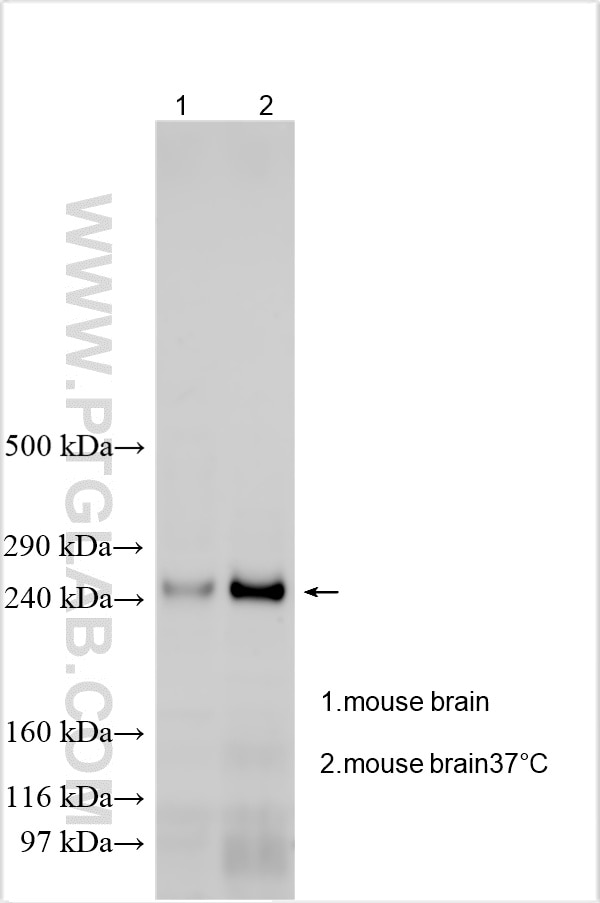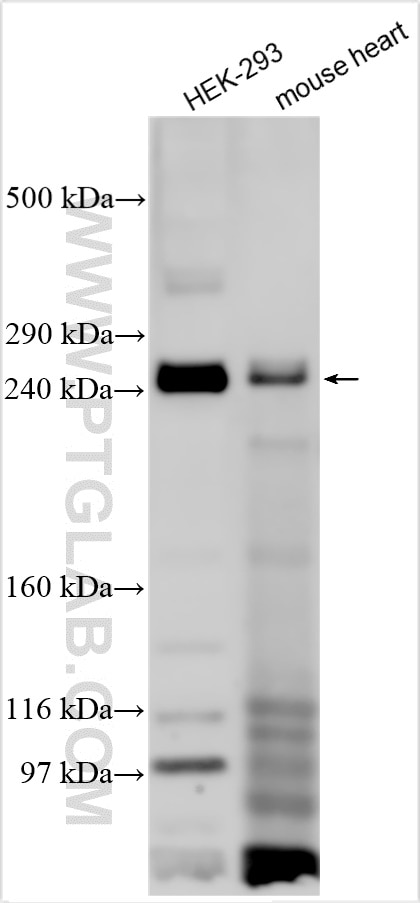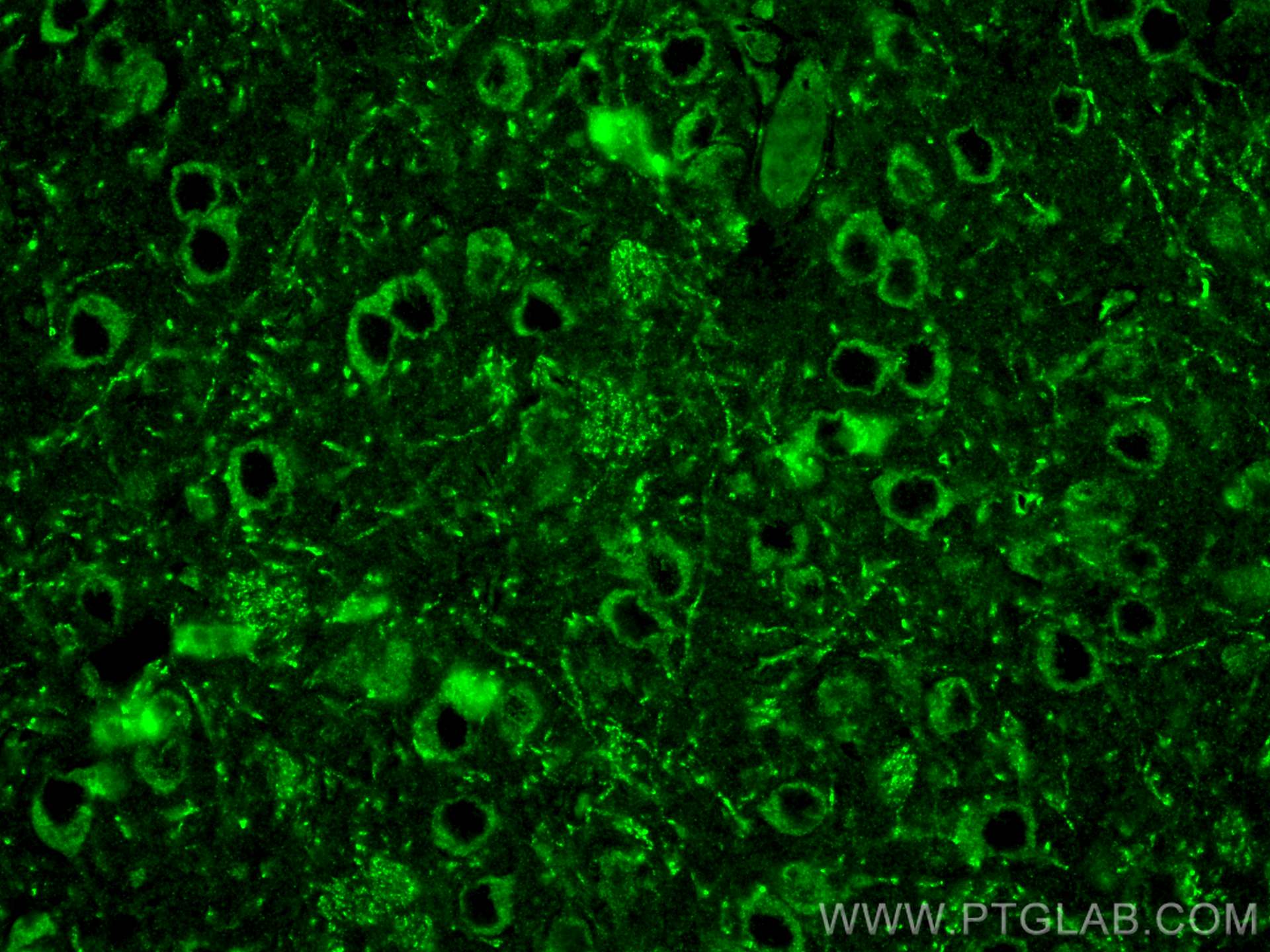Validation Data Gallery
Tested Applications
| Positive WB detected in | HEK-293 cells, mouse brain tissue, mouse heart tissue |
| Positive IF-P detected in | mouse brain tissue |
Recommended dilution
| Application | Dilution |
|---|---|
| Western Blot (WB) | WB : 1:500-1:2000 |
| Immunofluorescence (IF)-P | IF-P : 1:50-1:500 |
| It is recommended that this reagent should be titrated in each testing system to obtain optimal results. | |
| Sample-dependent, Check data in validation data gallery. | |
Product Information
27551-1-AP targets SCN2A in WB, IF-P, ELISA applications and shows reactivity with human, mouse samples.
| Tested Reactivity | human, mouse |
| Host / Isotype | Rabbit / IgG |
| Class | Polyclonal |
| Type | Antibody |
| Immunogen |
CatNo: Ag26022 Product name: Recombinant human SCN2A protein Source: e coli.-derived, PGEX-4T Tag: GST Domain: 280-335 aa of NM_001040142 Sequence: MQWPPDNSSFEINITSFFNNSLDGNGTTFNRTVSIFNWDEYIEDKSHFYFLEGQNDA 相同性解析による交差性が予測される生物種 |
| Full Name | sodium channel, voltage-gated, type II, alpha subunit |
| Calculated molecular weight | 228 kDa |
| Observed molecular weight | ~250 kDa |
| GenBank accession number | NM_001040142 |
| Gene Symbol | SCN2A |
| Gene ID (NCBI) | 6326 |
| RRID | AB_3085969 |
| Conjugate | Unconjugated |
| Form | |
| Form | Liquid |
| Purification Method | Antigen affinity purification |
| UNIPROT ID | Q99250 |
| Storage Buffer | PBS with 0.02% sodium azide and 50% glycerol{{ptg:BufferTemp}}7.3 |
| Storage Conditions | Store at -20°C. Stable for one year after shipment. Aliquoting is unnecessary for -20oC storage. |
Background Information
The Sodium Channel, Voltage-Gated, Type II, Alpha (SCN2A) gene encodes the neuronal sodium channel NaV1.2. There are two major developmentally regulated splice isoforms of NaV1.2 that use mutually exclusive copies of the fifth coding exon and differ by one amino acid at position 209: Asparagine (Asn/N) vs. Aspartic acid (Asp/D). NaV1.2 is one of several sodium channels involved in initiation and propagation of action potentials in neurons. It's widely expressed throughout the human central nervous system, but not in peripheral tissues. (PMID: 29691040)
Protocols
| Product Specific Protocols | |
|---|---|
| IF protocol for SCN2A antibody 27551-1-AP | Download protocol |
| WB protocol for SCN2A antibody 27551-1-AP | Download protocol |
| Standard Protocols | |
|---|---|
| Click here to view our Standard Protocols |



